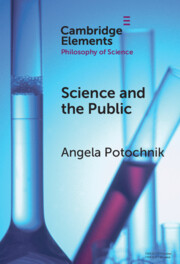1 results

Science and the Public
-
- Published online:
- 23 March 2024
- Print publication:
- 25 April 2024
-
- Element
- Export citation

